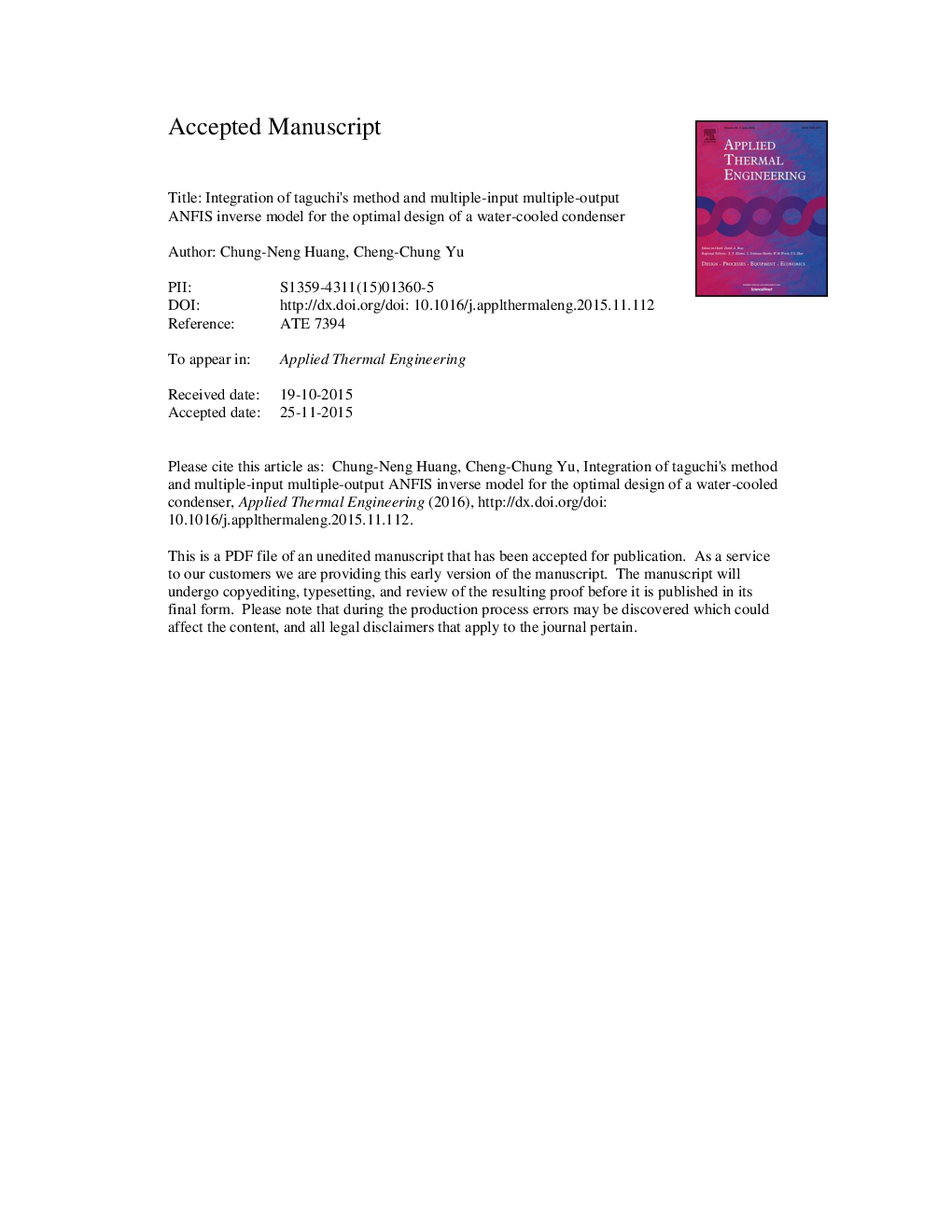| Article ID | Journal | Published Year | Pages | File Type |
|---|---|---|---|---|
| 7048580 | Applied Thermal Engineering | 2016 | 13 Pages |
Abstract
The design of water-cooled condensers is a typical nonlinear and multiple-input, multiple-output (MIMO) problem; to achieve optimal performance, Taguchi's method and inverse-model technology were integrated, and a simulation platform developed by using the COMSOL Multiphysics software was used. First, the minimum number of experiments required to represent the full-factorial design and the most critical factors affecting product performance were determined by using Taguchi's method. Next, the adaptive neuro-fuzzy inference system (ANFIS) was extended to an MIMO-ANFIS architecture and used to train an inverse model for realizing the desired design. By using a well-trained model that can determine the inverse relationship of each input-output set, the manufacturing parameters for the optimal performance were obtained. A simulation study on a water-cooled condenser is presented to demonstrate the effectiveness of the proposed method.
Keywords
Related Topics
Physical Sciences and Engineering
Chemical Engineering
Fluid Flow and Transfer Processes
Authors
Chung-Neng Huang, Cheng-Chung Yu,
